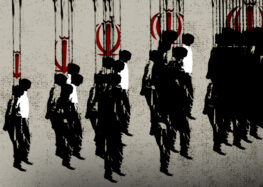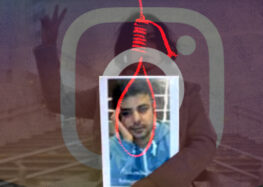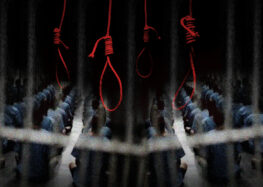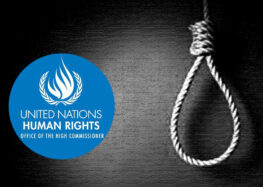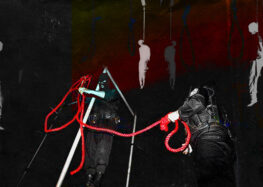Iran’s Execution of Three Kurdish Prisoners is Unlawful and Unjust
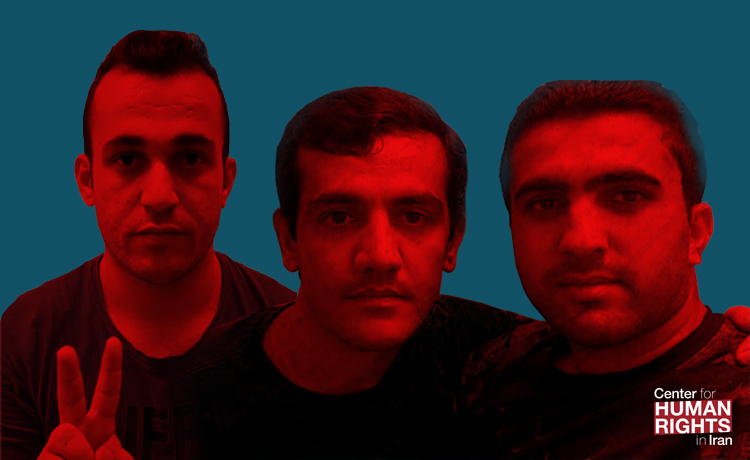 All Three Cases Rife with Denial of Due Process and Evidence of Torture and Forced Confessions
All Three Cases Rife with Denial of Due Process and Evidence of Torture and Forced Confessions
September 10, 2018—Iran’s execution of three Kurdish prisoners, Ramin Hossein Panahi (22), Zanyar Moradi (29) and Loghman Moradi (31) at dawn on September 8, 2018, despite serious concerns regarding the use of torture, forced confessions and denials of access to counsel, represents a horrific violation of law and the right to life, the Center for Human Rights in Iran (CHRI) said in a statement today.
“The Iranian judiciary operates outside the law with impunity,” said Hadi Ghaemi, CHRI executive director. “Iran’s hanging of men who have been denied counsel and tortured into making so-called confessions is tantamount to murder.”
“The executions were wrong and against the law and should not have been carried out,” the lawyer for the Moradis told CHRI. “The accusation of murder and assassination against my clients were lies. Their case was still open and their families had lodged a complaint to seek a judicial review.”
Meanwhile, Amjad Hossein Panahi informed CHRI that his brother Ramin was executed without saying goodbye to his family and was buried in secret.
UN Special Rapporteur on arbitrary executions Agnes Callamard and UN Special rapporteur on human rights in Iran Javaid Rehman had asked the authorities in Iran to “immediately halt” these executions and annul all three death sentences due to credible concerns that they did not receive a fair trial and that they had been tortured into making false confessions.
The three men were being held at Rajaee Shahr Prison in Karaj, 32 miles west of Tehran, but the executions took place in the capital, according to the statement by the Tehran Prosecutor’s office that was carried by Iran’s official news agency, IRNA.
Panahi had been arrested in June 2017 in Sanandaj, Kurdistan Province, during an ambush by the Islamic Revolutionary Guard Corps (IRGC) against members of Komala, a militant Kurdish nationalist group. He was sentenced to death for armed rebellion despite repeatedly denying ever using a weapon.
Panahi’s family had expressed concern to the CHRI that rising tension in Kurdish regions had increased the possibility that his execution would be carried out.
“The security situation in the Kurdistan region has been very tense because of the armed confrontation with PJAK and the deaths of border guardsmen,” a source close to the family told CHRI on July 31.
“The Islamic Republic usually tries to impose calm by carrying out executions, and for the past few weeks, some sites run by the IRGC and the Intelligence Ministry have been publishing articles every day in order to justify Ramin’s death sentence. It seems they are trying to prepare public opinion for his execution,” added the source.
Zanyar Moradi and Loghman Moradi (no relation) were sentenced to death in December 2010 for “involvement in the murder of the Marivan Friday prayer leader’s son” and “moharebeh (enmity with God).” The men had denied the charges in court and said they only confessed to the murder because agents of the Intelligence Ministry had tortured them.
“We were tortured a lot. I still have the marks on my body. I was even operated on in 2012 and 2013 for my injuries. I have slipped discs,” Zanyar Moradi said in an interview with CHRI from Rajaee Shahr Prison in January 2017.
“I was only 19. I didn’t know anything about national security and I certainly didn’t have the tolerance for torture. If they had told me to take responsibility for every assassination in Iran since 1970, I would have. I just wanted that terrible torture to end. They had my home address and threatened my mother and little sister. We had no choice. We said we’d accept everything they wanted. They wrote the scenario they were looking for and we signed it.”
Iran has one of the world’s highest per capita execution rates. Death sentences are carried out despite prosecutions that lack due process and Iran has a history documented by the UN and international human rights groups of forcing prisoners to make so-called confessions. Threats against family members are also routinely made to increase pressure on prisoners.

